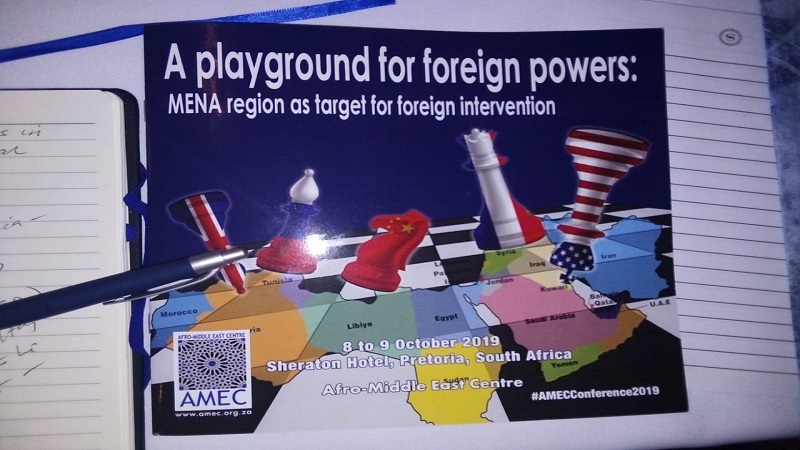The Global War on Terror (GWAT) was still determining US policies. This is the opinion of Washington-based activist and author, Phyllis Bennis.
The US had a military budget of $617 billion and even if that budget was halved, it would still dwarf that of other countries, she said.
She was speaking at the Afro-Middle East Centre’s annual conference “A playground for Foreign Powers, the MENA (Mid East-North Africa) region as a target for foreign intervention” being held in Pretoria.
She said there were about 11 different conflicts playing out in Syria and Libya, with the Syrians and Libyans doing the dying.
Bennis focused on Capitol Hill, having said that hawk John Bolton, who had recently left the presidency, was not a neo-con.
“A neo-con is one who promotes regime change via military means, in other words the replacing of a hostile regime with a less hostile one,” she said.
Bolton, who was promoting the bombing of Iran, was not concerned about this. Bolton was rather a militarist, who had no concerns about the consequences of such actions. Regime change was not his focus.
Trump, she said, was characterised by the fact he had “no policy”. Nor was he committed to diplomacy. Trump was committed to “the circus of diplomacy”. Bennis used the example of President Clinton basking in the glory of the Oslo Accords on the White House lawns when the agreement had been struck in Norway.
Like Clinton, Trump was only concerned with his narcissism, in other words, him being the centre of attention. She argued that Trump was now concerned about elections.
“For this reason, his priority is to avoid casualties on the battlefield as his voters come from those who serve in the military, the poorest and less educated in the US.”
She added that in the US, 140 million people were on the socio-economic edge.
Bennis referred to the US Africa military command, AFRICOM, which ironically has its headquarters in Stuttgart, Germany.
AFRICOM represented a militarisation of US foreign policy in Africa and the MENA region. “Militarised diplomacy has taken over US (soft) policy,” she said.
She quoted a US general as saying that the “posture plan” (of AFRICOM) was to create “the optic” that the US was not militarising Africa.
Referring to Israel, she added that Israel was a strategic and political necessity for the US in the MENA region. This intersection of strategic urgencies and political policy made Israel important to the US.
She concluded by saying that she drew hope for the future due to fast changing perceptions world wide and the relevancy of the global movement.
VOC






 WhatsApp us
WhatsApp us 

